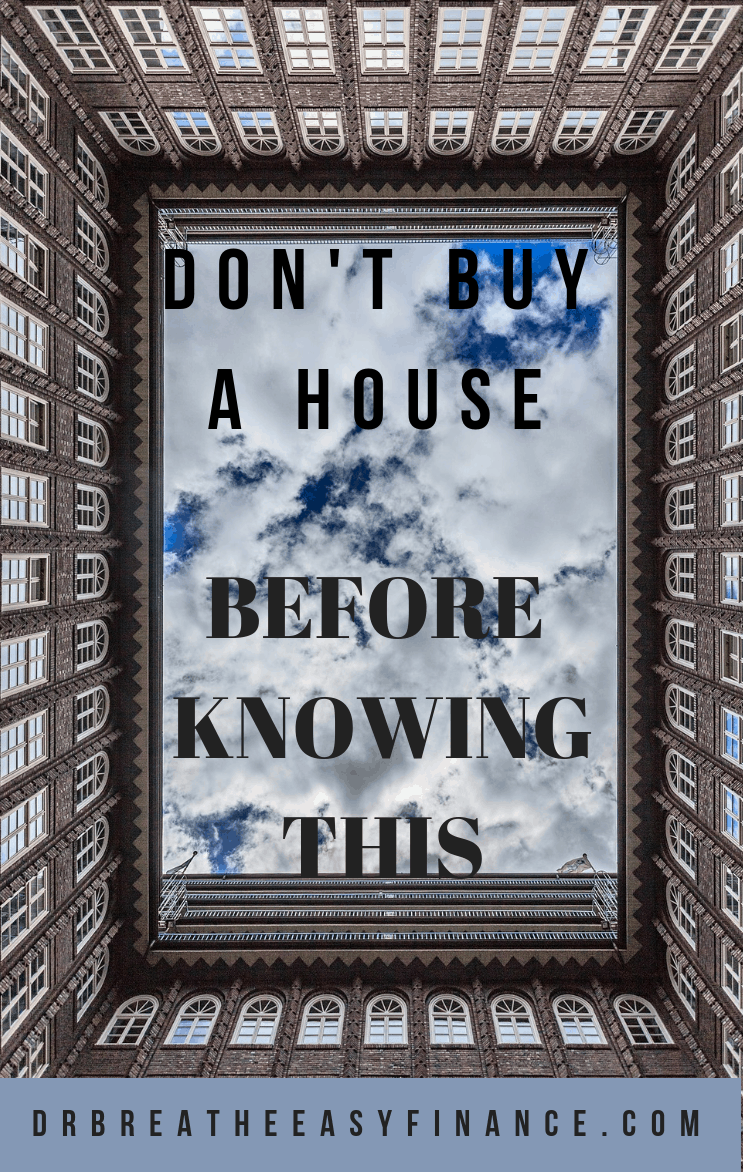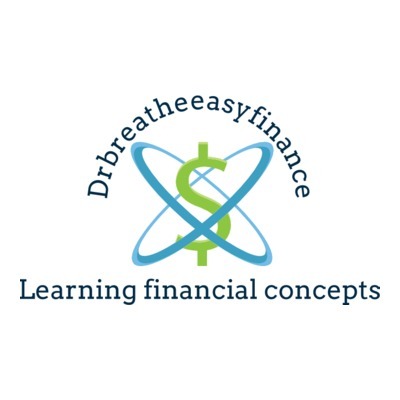So you want to buy a house. That’s awesome! Here, I will be discussing how to put your financial house in order before purchasing that wonderful house.
Table of Contents
Renting is throwing money into the gutter. Or is it?
First, we need to debunk the common misconception that renting is throwing money away. Renting buys you time. There is an opportunity cost for money. That 100,000 dollars down payment, if invested instead of buying a house, would be worth about 1.1 million dollars in 30 years with an annual interest rate of 8 percent.
This concept is about the time value of money. Ask yourself the question; can this money be used towards my financial goals rather than buying a house? It’s a choice.
There is extensive buy versus rent debates online but that is not our goal for this post. A good one is in New York Post if interested.

Pin to Pinterest Personal finance tips
Separate emotions from finance
Based on my background, owning a house is essential to a person’s success. Therefore, I understand the urge for many to buy a house as a life goal. However, in the western world, most people do not actually own their house. The bank does.
Remove all emotions from finance. It seems like many do not adhere to this rule when it comes to purchasing the house they live in. After all, you want to be comfortable. For the doctors, we all want that “doctor house” with a nice backyard, spacious, high ceiling, four car garage and a cute garden. I am not saying don’t buy a house. What I am saying is to get your financial house in order before making one of the largest purchases of your life.
Go ahead and buy that house as long as you do not fall into the following categories.
-
Don’t buy a house if you still have student loans
Student loans are one of the Achilles heel of success in America. Last time I read, Americans have about 1.3 trillion in student loans and it continues to increase. Undergraduates now leave school owing an average of about 34,000 dollars. That is up 70 percent from a decade ago. If you are a doctor, it is almost a guarantee that you have close to 200,000 dollars in loans, if not more. Add your undergraduate balance as well, it becomes frightening. We are desensitized to the burden of student loans. We just pay the minimum payments and basically ignore the monthly statements. Imagine having a loan of 200,000 dollars and then adding a mortgage of 500,000 dollars on it. Now you are 700,000 dollars deep in debt. If debt were a physical load, you would be crushed by now. In our 12 toddler steps to financial freedom, buying a house should be after step 7. Take your time; there is no need to rush to purchase a home. Settle your current debts before getting into another one!
-
Don’t buy a house if you do not have emergency funds
Having a good emergency fund cannot be stressed enough. You don’t want to be house broke. Exposing your family to financial risk is not cool. An emergency fund is extra cash that you set aside for unforeseen circumstances. The recommended emergency fund is 3-6 months of living expenses. If you are a home owner, err to the side of caution and do 6 months. It can make a huge difference. With one big disaster, your financial journey can quickly be ended. An emergency fund can reduce a disaster to just a bump in the road. It gives you peace of mind.
What qualifies as an actual disaster?
Emergency fund must only be used for true emergencies; such as job loss, medical expenses and home repairs. It should not be used for a wedding, vacation or any other celebrations.
As a general rule of thumb, you need to save at least 1% of the cost of your house every year for maintenance. So if you have a 500,000 dollar home, you need to save 5,000 dollars yearly for house maintenance. I recommended aiming for 3%.
-
Don’t buy a house if you do not have 20 percent down payment
The 20 percent down payment is not just a bank requirement to avoid private mortgage insurance. It is a litmus test, if you can actually afford a home. Let’s face it, if you cannot afford a 20 percent down payment, you cannot afford the house. Of course, there are banks who offer loans with zero percent down and with no private mortgage insurance such as the physician loan. The problems with these loans are they tend to have higher interest rates. Take your time, save up for that 20% down payment. The best way to guarantee a good interest rate is to pay 20 percent down.
-
Don’t buy a house if you are not sure about your job
Job stability is a prerequisite for purchasing a home. If there is the possibility of having to relocate for a job within the near future, you should rent. When I relocated for my job, my wife really wanted to purchase a home. It was tempting, but I held my ground and rented. I did not want us to feel obligated to stay in an area, just because we prematurely purchased a house. However, once we are comfortable with the job and see a long-term potential, we will then start searching for a house. That will also give us enough time to save for the 20 percent down payment. No cutting corners here people.
-
Don’t buy a house if you are not sure you want to stay in a place for more than 5 years
On average, it takes 3-5 years at a minimum to “break even” on a new house. This means, if you had your house for less than 3 years, you are more likely to come out ahead if you have rented instead. As doctors, many of us have residencies that are only 3 years long. This is not the time to buy a house. You can check out the rent versus buy calculator here to do your own calculations. In my area, a 350,000 dollar house rent for about 2100 dollars. A simple plug-in of those numbers into the calculator says buying will be cheaper after 4 years.
The truth is, we live in a comfortable 4 bedroom house for 1,400 monthly rent. When we buy, we would be buying a bigger house and spending more. The calculator spits out 12 years for buying to outweigh renting in that case.
While this rule might vary from state to state and how much house you are purchasing, it is still a good rule to follow. This rule is actually a variation of our number 4 point above. However, you might like the job but hate the area.
-
Don’t buy a house if you do not qualify for a good interest rate.
Do not be desperate to own a house. There must be a reason why you do not qualify for a good rate. Find that reason and fix it. A higher interest rate will make your mortgage payments higher.
For someone with a bad credit, a high interest rate spells trouble.
Don’t be like this person asking questions on credit Karma
I want to buy a house, but I only have a credit score of 562, is this possible?
It might be possible, but not advisable. You’ll be falling victim to the same type of poor financial decisions, which caused your bad credit.
Did I miss some? Can you find other reasons not to buy a house? Please comment and share below.
I am a pulmonary and critical care doctor by day and personal finance blogger/debt slaying ninja by night.
After paying off close to $300,000 in student loan debt in less than 6 months into my real job, I started on a mission to help others achieve the same. There is no magic to this than to strap up and get it done. Some of the ways we achieved this include side hustle, budgeting, great negotiation skills, and geographical arbitrage.
When I was growing up, common knowledge in Nigeria is that there is one thing you cannot trust anyone else with, and you guessed it – your money.
Being frugal came easily to me based on my background. However, the concept of building wealth did not solidify in my mind until when I finished medical school. I wish I knew what I know now when I was 14. Still, I don’t know enough and I am constantly learning to improve my knowledge.
My goal is to reduce financial illiteracy among young professionals. I am catering to the beginners – babies and toddlers in financial literacy.








Viral Gandhi says
Bayo, you should have presentes two sides of the coin. I agree with the above mentioned pointers but you did not touch the reality of ever increasing rates and what percent of your salary should be used for mortgage and utility..
admin says
Thanks for stopping by. You have a valid point. I will consider writing the other side of the coin sometime. You can actually write a guest post if you are inclined.
The interest rate however, should not cause you to FOMO ( fear of missing out) . This is a common trap. Only buy when you are ready, no matter the noise around. Have a financial policy and stick to it.
For mortgage, as physicians I agree with white coat investor, he recommends not more that 2 times your salary. If you want to be wild, not more that 3 times.
This is to tell you that even as a high income earner, you can s bite more than you can chew
ImmigrantFinances says
Common sense rules, though majority would not abide by them. I’ll add these two:
7. Don’t buy a house on anything more than a 15-year mortgage
8. Don’t buy a house that the principal, interest, taxes and insurance combined (PITI) is more than 25% of your take home pay
If you abide by all these rules, you set yourself up to winning financially faster
admin says
Wish common sense is common. Those are two great additions although I am still not 100% sold on the 15 years mortgage. You will definitely pay less interest overall that way and forced savings cannot be sniffed at. The 25% rule is very important in all classes of income. Thanks for stopping by as always.
Kari says
A lot of really great points that should be considered. It is one of the biggest decisions you will make! One more thing to consider, what excites you when u are younger about owning a house definitely changes when u r older!
Millionaire Dojo says
I met all these requirements except paying 20% down. We don’t have PMI though and our interest rate is low. Buying a house when you’re young is a great idea if you can rent out the rooms to some of your friends and eliminate the mortgage expense!
Adebayo says
I think the most important ones were the rest. Renting it out is house hacking. That is an awesome idea. That’s savvy. Thanks for stopping by.
Little Seeds of Wealth says
This is a great checklist. Too often we fall in love with a house and let emotions drive our behavior. The last recession woke people up about the danger of buying more than they can afford. However, with the longest bull run some risk appetite has come back and people need to read checklists like this now before committing to buy anything at peak housing.
Sarah says
A great post! There are so many things to consider before buying a home. You’ve highlighted a lot of really great points that people need to know.
Priyanka Patel says
Thanks for sharing these amazing point which should be considered before buying a new home. My family is planning to get a new home and I will definitely share this article with the family members as it will be of great help. I respect the time and efforts you have invested in researching and sharing these amazing tips and guides. Keep up the good work!!